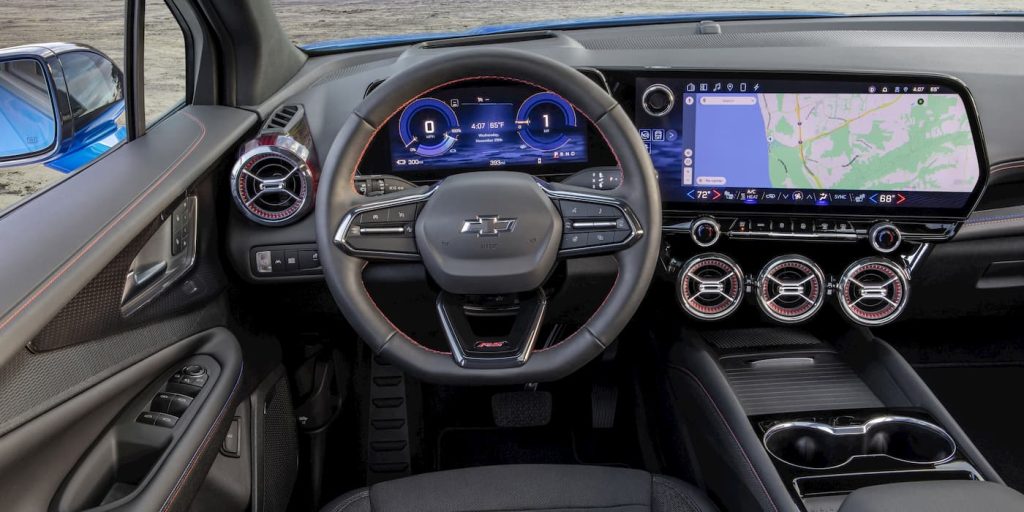Dealers Double Down: Renewed Fight Against EV Sales Requirements

Table of Contents
Main Points:
2.1. Economic Concerns Fuel Dealer Resistance to EV Sales Mandates:
H3: Impact on Profit Margins: Dealerships are voicing serious concerns about the impact of EV sales requirements on their profit margins. While EVs are gaining popularity, the current profit per vehicle is significantly lower than that of gasoline-powered cars. This is due to several factors, including higher manufacturing costs, lower consumer prices driven by government incentives, and a complex supply chain. This compressed profit margin forces dealerships to sell more EVs to maintain their current revenue streams, which isn't always feasible given current market demand and infrastructure limitations.
H3: Infrastructure Investment Burden: Meeting EV sales requirements demands substantial upfront investment from dealerships. This includes installing costly EV charging infrastructure at their locations, retraining service technicians to handle EV-specific repairs, and managing a new inventory of electric vehicles with different storage and handling requirements. Estimates for equipping a dealership for EV service range from tens of thousands to hundreds of thousands of dollars, depending on the size and existing infrastructure. This financial burden disproportionately impacts smaller dealerships, potentially driving them out of business.
H3: Market Readiness Concerns: Dealerships express valid concerns about the market's readiness for a rapid shift to EVs. Consumer demand, while increasing, is not yet at a level to support the aggressive EV sales targets set by many states and regions. Critical factors include:
- Lack of consumer education: Many consumers remain unaware of the benefits of EVs or lack understanding of charging infrastructure and technology.
- Range anxiety: The limited range of some EVs remains a significant barrier for potential buyers, particularly in areas with sparse charging infrastructure.
- Charging infrastructure gaps: The availability of public charging stations, especially in rural areas, is inadequate to support widespread EV adoption.
2.2. Legal Challenges and Lobbying Efforts Against EV Sales Requirements:
H3: State-Level Legal Battles: Several dealer associations are actively challenging state-mandated EV sales quotas through legal action. Lawsuits are underway in states like [insert examples of states with ongoing lawsuits], arguing that the mandates are economically unfeasible, infringe on their business operations, and fail to account for market realities.
H3: Federal Lobbying and Political Influence: Dealer groups are exerting considerable political influence at the federal level through intense lobbying efforts. Organizations like [insert examples of dealer lobbying groups] are working to influence legislation related to EV sales targets, incentives, and overall policy direction. These efforts aim to shape the national narrative surrounding EV mandates and ensure a more favorable regulatory environment for dealerships.
H3: Public Relations Campaigns: Dealerships are also engaging in sophisticated public relations campaigns to shape public opinion. These campaigns often highlight the economic consequences of rapid EV adoption and portray EV mandates as premature and potentially harmful to the economy and consumers. This involves targeting various media outlets, social media engagement, and community outreach initiatives.
- Examples of lobbying actions: [Insert specific examples such as specific bills lobbied against or testimonies given].
2.3. Alternative Solutions Proposed by Dealerships:
H3: Phased Approach to EV Adoption: Instead of abrupt mandates, dealers advocate for a more gradual transition to electric vehicles. They propose phased-in sales requirements that align with market demand and allow dealerships time to adapt their infrastructure and operations. This approach includes realistic timelines and policies that incentivize both dealerships and consumers to participate in the transition.
H3: Focus on Consumer Education and Incentives: Dealerships suggest that governments should prioritize consumer education initiatives and financial incentives to boost EV adoption. This could include offering rebates, tax credits, and educational programs to address consumer concerns about range anxiety, charging infrastructure, and EV technology. A more informed and incentivized consumer base will naturally drive increased demand.
H3: Investment in Charging Infrastructure Partnerships: Dealerships propose collaborative partnerships between the government, private sector, and dealerships to build a more comprehensive and reliable charging network. This shared investment would ease the financial burden on individual dealerships and accelerate the development of a robust charging infrastructure nationwide.
- Examples of proposed solutions: [Include specific proposals from dealer associations or individual dealerships]
Conclusion: The Future of EV Sales Requirements and Dealer Opposition
The ongoing conflict between dealerships and government regulators over EV sales requirements highlights a complex interplay of economic realities, legal challenges, and market readiness. Dealers' concerns about profit margins, infrastructure investments, and market demand are significant and cannot be ignored. Their proposed alternatives, focusing on a phased approach, consumer education, and collaborative infrastructure development, merit serious consideration. The future of EV adoption in the US will depend on finding a balance between ambitious climate goals and the economic viability of the automotive retail sector. Stay informed about the ongoing fight over EV sales requirements and understand the challenges and opportunities presented by EV mandates to form your own informed opinion on this crucial issue.

Featured Posts
-
 The Truth Behind Selena Gomez And Benny Blancos Alleged Baby Plans
May 11, 2025
The Truth Behind Selena Gomez And Benny Blancos Alleged Baby Plans
May 11, 2025 -
 Meet The Winners Of The Resi Awards 2025
May 11, 2025
Meet The Winners Of The Resi Awards 2025
May 11, 2025 -
 Borisa Dzonsona Ujeo Noj U Teksasu Detalji Incidenta
May 11, 2025
Borisa Dzonsona Ujeo Noj U Teksasu Detalji Incidenta
May 11, 2025 -
 Eric Antoine Et Sa Compagne Apparition Remarquee A La Premiere Parisienne
May 11, 2025
Eric Antoine Et Sa Compagne Apparition Remarquee A La Premiere Parisienne
May 11, 2025 -
 Eric Antoine Une Ancienne Miss Meteo A Ses Cotes Lors De La Premiere
May 11, 2025
Eric Antoine Une Ancienne Miss Meteo A Ses Cotes Lors De La Premiere
May 11, 2025
